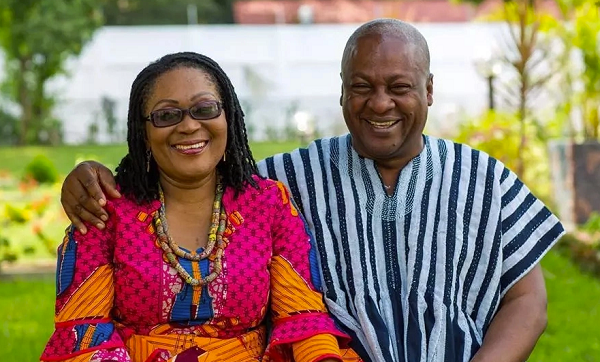
John Mahama rejects 'First Lady’s Salary'
Former President John Dramani Mahama has rejected the payment of monthly salaries to the spouses of the President and Vice President of the Republic of Ghana, describing the recommendation as "inappropriate" and its approval as "unfortunate".
The former President suggests in an opinion shared on Facebook said the existing convention of providing spouses of both sitting and former Presidents and Vice Presidents with quarterly allowances should be maintained.
John Mahama writes on 'First Lady's Salary'
The practice he said started with the President Jerry John Rawlings Administration and “issues in respect of allowances of the spouses have largely been handled administratively and provided for under the budget of the Office of the President.”
“The spouses of the President and Vice President are not captured among Article 71 Office Holders and therefore there is no legal or constitutional basis for it”, he stated.
President Mahama said the practice has also included the payment of quarterly allowances to the surviving spouses of former Presidents, former Vice Presidents and former Heads of State. He explained that this practice has been appreciated by the beneficiaries as a token from the State.
Mr Mahama also noted that the activities of the First and Second Ladies are funded by the Office of the President to enable them fulfil “the roles that our modern democracies expect them to play, such as empowering women, girlchild education, reproductive health issues, teenage pregnancy, assistance to widows, fighting early marriage, preventing mother to child transmission of HIV, STEM for girls...”
The former President also questioned the decision of the Ntiamoa-Baidu Committee to recommend the payment of monthly salaries pegged at the level of a Cabinet Minister to both the First Lady and wife of the VP, asking, “and why did Parliament also approve this recommendation without a review?”
Mr Mahama also advocated for the establishment of an Independent Emoluments Commission (IEC) as recommended by the Constitution Review Commission and endorsed by the Edu-Bandoh and Ntiamoa-Baidu Committees.
The Commission, he says, will not only stop the practice of setting up new emoluments committee every four years and coming up with varying recommendations but also ensure that salary administration in Ghana is rationalized and equity is brought into the system.
